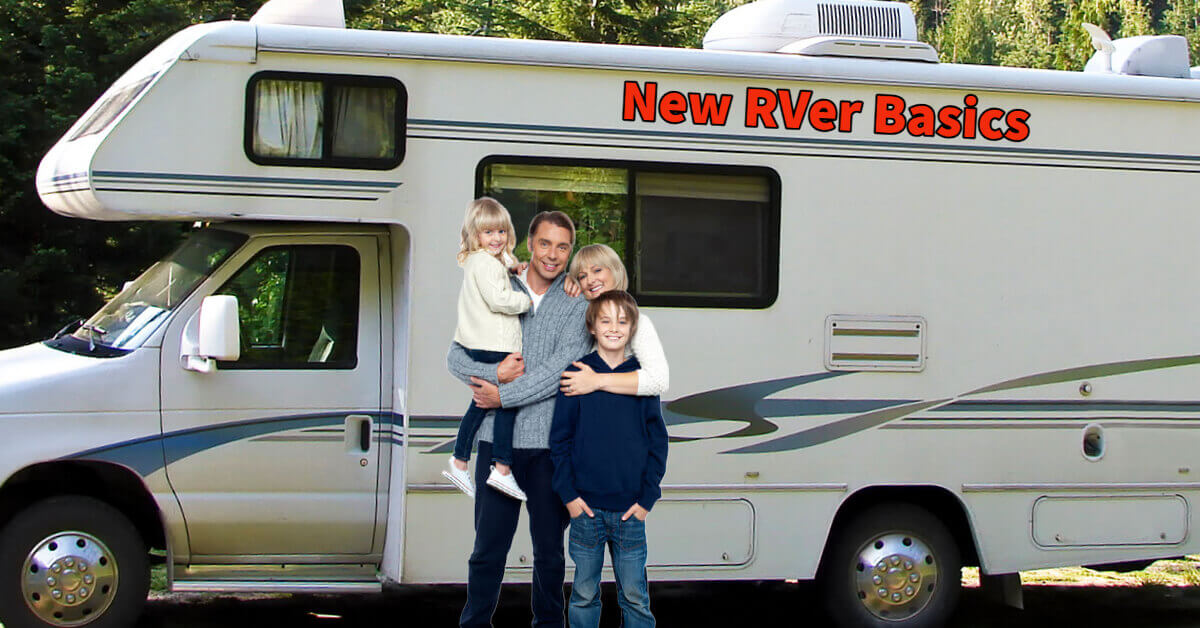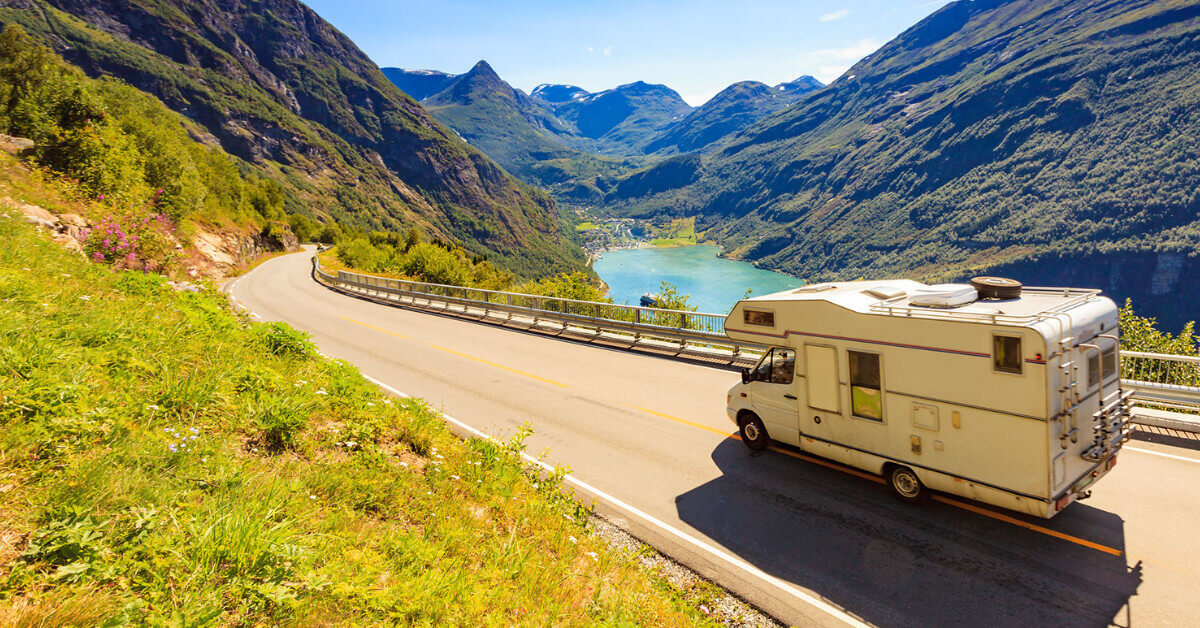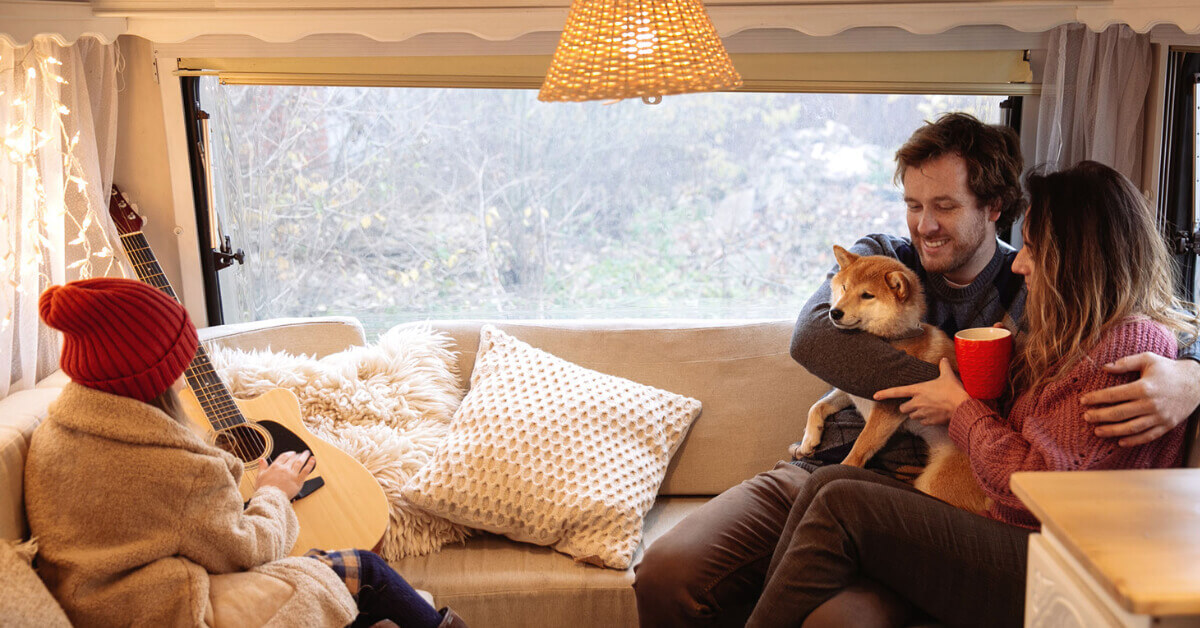- Home Page
- More RVing Tips & Tricks
- Learn the Basics of Rving
Learn the Basics of RVing: A Comprehensive Guide for Beginners
You should learn the basics of RVing before starting your first RV adventure
RVing is a fantastic way to explore the country and experience new adventures. It's the perfect way to travel with your family, enjoy the great outdoors, and make memories that will last a lifetime. However, if you're new to RVing, figuring out where to start can be a challenge. In this guide you will learn the basics of RVing, we'll cover everything you should know to get started, from choosing the right RV to planning your route and finding the best campsites.
Choosing the Right RV
One of the first things you'll need to do when starting your RV journey is to choose the right vehicle. Many types of RVs are available, so it's essential to choose one that fits your needs and budget. Here are the factors you must consider when selecting an RV:
Types of RVs
- Motorhomes: Classes A, B and C motorhomes.
- Travel trailers: Fifth wheels, toy haulers, and pop-up campers
- Truck campers
Size and Layout
- Consider the size of your family or group
- Think about the amenities you want, such as a kitchen, bathroom, and bedroom
- Look for a layout that fits your lifestyle and travel needs
Budget
- Determine what you can spend on an RV
- Consider the cost of maintenance, insurance, and fuel
- Look for financing options if needed
Preparing for Your Trip
Once you've chosen your RV, it's time to start preparing for your trip. You can take these steps to get ready:
Planning Your Route
- Decide on your destination and route
- Research campsites and RV parks along the way
- Consider the terrain, weather, and road conditions
Packing for Your Trip
- Make a packing list of essential items
- Consider the weight and storage capacity of your RV
- Don't forget to pack food, water, and cooking supplies
Familiarizing Yourself with Your RV
- Practice driving and maneuvering your RV
- Learn how to set up and take down your RV at campsites
- Familiarize yourself with the electrical, plumbing, and heating systems
On the Road
Once you hit the road, there are some things to remember to make your RV trip safe and enjoyable.
Driving Tips
- Slow down and take your time
- Be aware of the height and weight of your RV
- Watch out for low clearances, narrow roads, and steep grades
RV Maintenance
- Keep up with regular maintenance and inspections
- Check tire pressure, oil levels, and fluid levels
- Keep your RV clean and well-maintained
Safety and Security
- Lock your RV when you're away
- Install smoke detectors, carbon monoxide detectors, and fire extinguishers
- Stay aware of your surroundings and stay safe
Finding Campsites
Finding the right campsites can make or break your RV trip. Here are some helpful tips for finding the best places to stay:
Researching Campsites
- Use online resources to research campsites and RV parks
- Look for reviews and ratings from other RVers
- Consider amenities such as hookups, showers, and laundry facilities
Making Reservations
- Book campsites in advance to ensure availability
- Consider peak season and holidays when making reservations
- Be prepared to pay a deposit or reservation fee
Boondocking and Dry Camping
- Boondocking involves camping off the grid without hookups or amenities
- Dry camping involves camping in a designated area without hookups
- Make sure to bring enough supplies and equipment for boondocking and dry camping
RVing with Pets and Kids
RVing can be a wonderful way to travel with your furry friends and little ones. Here are some tips for RVing with pets and kids:
Traveling with Pets
- Make sure to research pet-friendly campsites and RV parks
- Bring plenty of food, water, and supplies for your pet
- Consider crate training or seatbelt harnesses for your pet's safety
Traveling with Kids
- Pack plenty of snacks, games, and activities to keep kids entertained
- Ensure that you have a first aid kit and any necessary medications on hand
- Plan activities and destinations that are kid-friendly
FAQ
Here are some frequently asked questions about RVing:
How much does it cost to
RV?
How much does it cost to
RV?
- The cost of RVing can vary depending on the type of RV, travel distance, and campsite fees.
- Plan to spend an average of $50-$100 per day for RVing
Do I need a special license
to drive an RV?
Do I need a special license
to drive an RV?
- In most cases, you won't need a special license to drive an RV
- However, check your state's requirements for RV driving licenses
Can I bring my own food and
supplies in an RV?
Can I bring my own food and
supplies in an RV?
- Yes, bringing your own food and supplies is one of the advantages of RVing
- Make sure to pack enough food and supplies for your trip
Conclusion
RVing is a fantastic way to travel and explore the country. With some planning and preparation, anyone can hit the open road and start their RVing adventure. From choosing the right RV to finding the best campsites and RVing with pets and kids, we hope this guide has helped you learn the basics of RVing and get started on your RVing journey. Happy RVing!







Comments
Do you have a comment on this topic? You can leave your comment in the box below.